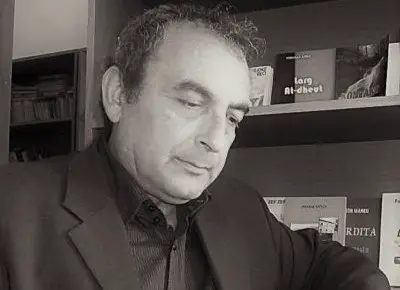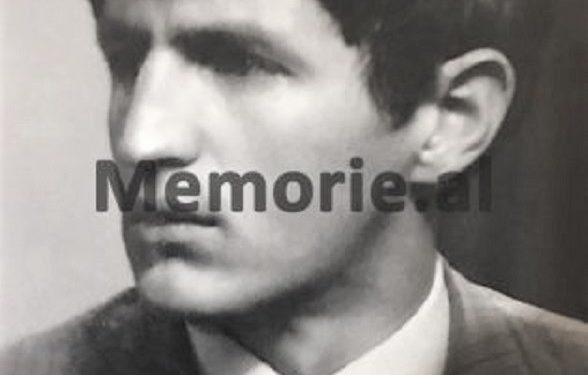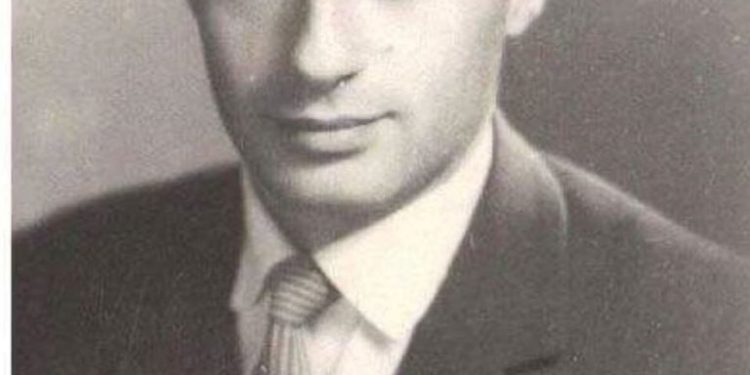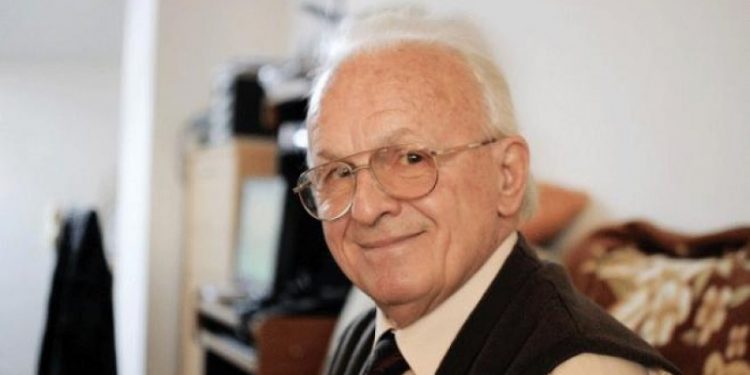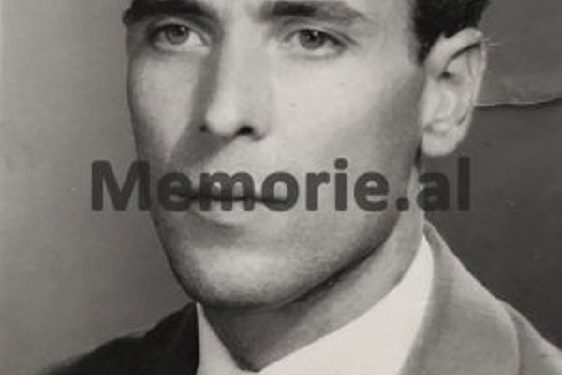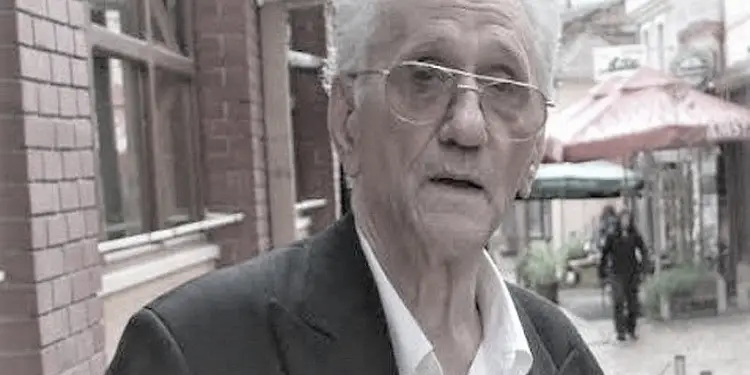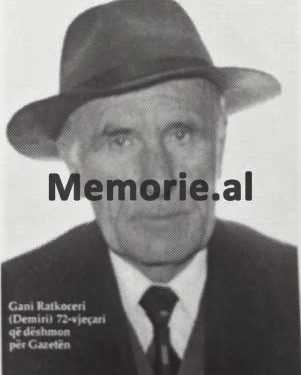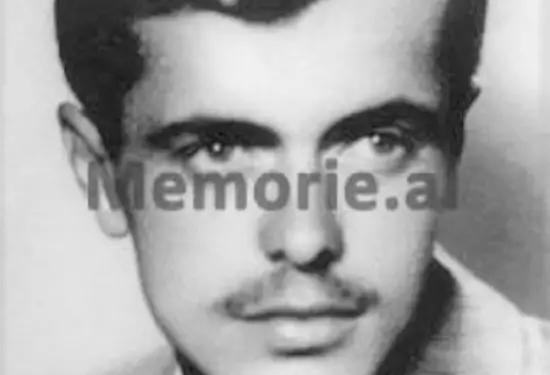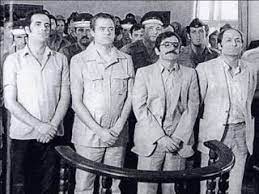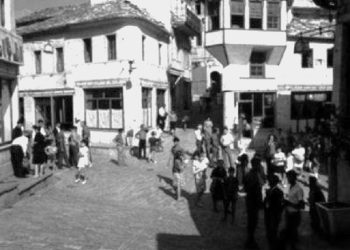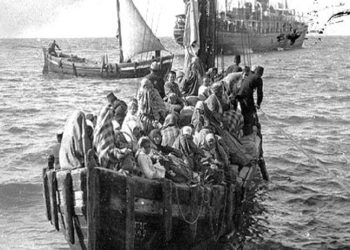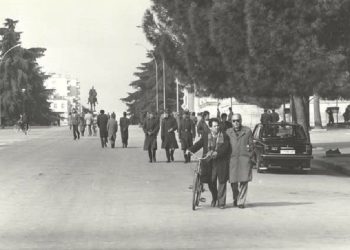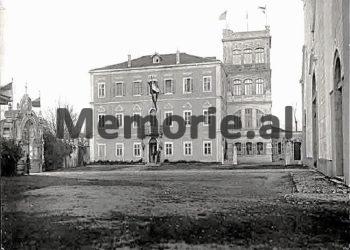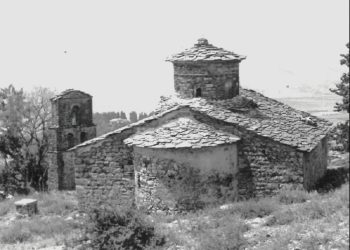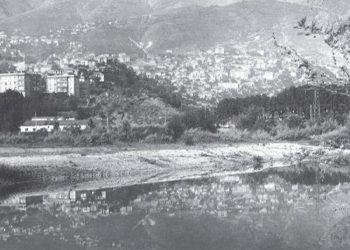From Ndue Dedaj
-Why were the Kosovar intellectuals who escaped to Albania attacked?-
Memorie.al / It is surprising how the communist regime never understood the Kosovars who crossed the border to find freedom in “Mother Albania”, but sooner or later, declared them enemies one after the other, maybe envoys of the Titist regime, etc. Those he did not punish, he kept under observation until the end. He spared none, even when he spent monetary funds for their university education. Finally, there are no unanswered questions. They came as patriots, hoping to escape the Serbian genocide of Tito-Rankovic in the 1950s, the confrontation with which had created a symbol of indomitable resistance, such as the writer Adem Demaçi and philosopher Ukshin Hoti, in late times. It is not that they ran away from Kosovo, but from Yugoslavia, which was not their country.
They looked for mother heaven here, but they found hell, mud and the color of dictatorship. Their pure patriotism, little by little, encountered our proletarian internationalism; they had to love the nation in another “way”, loving the Labor Party and the Commander, the victories of socialism, etc. But they had communism there, they had come here risking their lives on the border for Albanians and not for the party.
This is where the conflict between the Albanian state and the Kosovar emigrants begins. A topic that has never been talked about and why it has been thirty years since political prisons have fallen. Each of them deserves respect on their own, as much as their common portrait of the centrists of the race is valuable. In Tirana, a Turkish memorial has been placed, with the names of the victims who opposed the coup attempt in Turkey, a few years ago, while there is no memorial dedicated to our Kosovar brothers, who were martyred…!
Titles are given daily by the President of the Republic, but we don’t know if any of them have been honored. Who before the martyrs deserves the title “Honour of the Nation”? They are forgotten. They are remembered only by family members, friends and colleagues, but not by state institutions.
A good part of them came from literature, such as the writers: Agim Gjakova, Kapllan Resuli, Adem Istrefi; well-known teachers: Myrteza Bajraktari, Shefqet Kaçaniku, Ymer Llugaliu, Selim Kelmendi, Gani Ratkoceri, Idriz Zeqiraj, Hysen Bukoshi, Ibish Kelmendi; the painter Sadri Ahmeti; diplomat Esat Myftari; doctors Jetullah Gashi and Arben Çeta (brother of Anton Çeta); chemical engineer Namik Luci; agronomist Col. Nikçi, etc., court proceedings that took place in Tirana, Durres, Berat, Fier, Lezhë, Mirdita, etc.
There is a long list of Kosovo Albanians convicted here, much longer than one might think, although no one has bothered to compile it in full. Some came from prison to prison, had left Tito’s prisons, hoping that this was the “Promised Land”, but here prison and exile again awaited them, although not a few of them were allowed to continue their higher education at the University of Tirana, perhaps with the intention of embracing the Party line, which did not happen.
Higher education would make them more knowledgeable, but it would not make them communists. Agim Gjakova, the best known among them, as we read in the notes about his biography, had escaped in the 60’s because he had been a strong voice of the rights of the persecuted Albanians there and this was a strong card for him was welcomed here, but it would not be long in Tirana to arouse dissatisfaction with the regime, with his non-conformist literary work, which shows that totalitarian states react in the same way to independent intellectuals.
At the same time when young idealist nationalists were flocking from Kosovo to this place, the star of one of their brothers from Mitrovica, Ramadan Çitaku, was fading in Tirana, a participant in the founding of the Communist Party of Albania (1941), in the main political events and formations of soldier of the War, after the liberation six months Minister of Finance in 1946 and ambassador of Albania in Belgrade, until 1948, to then suffer long oblivion, due to the political clash with Enver Hoxha, who now called him “man of the Yugoslavs”.
Both the Albanian-Yugoslav political friendship and the later enmity with Yugoslavia, brought persecution and even victims in the ranks of the intelligentsia. Thus, in 1945, Prizren professor Kol Margjini, a graduate of Vienna, was arrested after thirty years of service in the country’s high schools and handed over to the Serbian authorities, where he died in prison after five years. Even the linguist Selman Riza, today with the statue in Gjakova, did not escape the “bilateral” prison.
The researcher Aleksander Meksi writes that; due to his deeply patriotic political activity, he was imprisoned in Tirana in 1945, just a few days after returning to Albania, where he had come to escape the Serbian genocide. He survived that case without being extradited to Yugoslavia, but this was not avoided in 1948, where after staying three months in Tirana Prison, the Albanian communists extradited him, as; “Kosovar anti-Yugoslav”, to be judged by the Yugoslavs. Riza spent three and a half years in Yugoslav prisons and only in December 1953 he was able to return to Albania, where he joined his family in Tirana.
Among the first to cross the border to Albania, in October 1951, was the “Teacher of the People” Gani Ratkoceri (Demiri), born in a village near Pristina, sentenced for agitation and propaganda in 1978 to ten years prison, gaining his innocence, having served half of his sentence. He has made his memories of the political ordeal in Albania public in the books he has written and in interviews, where he talks about the agreement between the UDB and the State Security, about the punishment of Kosovars, etc.
Ymer Llugaliu left Kosovo in 1958 and sought political asylum in Albania, where after completing his higher studies at the Faculty of History and Philology in Tirana, he was appointed a literature teacher at the high school in Rrëshen and then transferred to Kurbnesh, where arrested for agitation and propaganda in 1976. The writer Agim Gjakova conveyed his death with these words, on June 13 in Podujevë: “Ymer Llugaliu was one of the purest and most dignified figures in Albania, in freedom or in prison, which kept his Kosovar being high”.
Shefqet Kaçaniku, from Prizren, also a literature teacher, came to Albania to escape the oppression of the Yugoslav regime and ended up in Albania’s political prisons. In October 1975, the Court of Lezha sentenced him to ten years in prison for “agitation and propaganda against the popular government”. It was the easiest accusation to “prove”, three false witnesses were enough and your fate was no longer in your hands. Selim Kelmendi, another prominent name, literature teacher at Fushë-Kruja high school, in 1983, is convicted by the Supreme Court, on the charge that he was involved in a hostile group that was going to assassinate Hoxha, when he came to inaugurate the Historical Museum of Kruja.
A few years after the sentence, he would die in Burrel Prison, under unclear circumstances, without being given hospital assistance. They were pure patriots, good professionals, unbowed before the bureaucracy and, as such, made a difference with the time itself “bowed” before the state party, which took away the freedom for which he had fled from his homeland. There were also those who did not go to prison, but remained in the shadows and watched all their lives, such as Haki Osdautaj, a history and geography teacher at the “Bajram Curri” high school, writes researcher Ismet Balaj.
Advertisement
After we went to the schools of Kosovo, after the year 2000 and we met with teachers and students there, we understood even better the Kosovar martyrs here, why they were not only passionate teachers, but missionary leaders of the Albanian language. There, the teachers had suffered in Milosevic’s prisons, for the “mbrothesia” (mbrothesia) of the Albanian language. Not only intellectuals escaped from Kosovo, but also many ordinary people, who were sent to the emigrant camp in Seman (Fier), where they were subjected to Bolshevik “forms of education”.
It could be said that they had fallen from the rain in the hail. But it was not only the Kosovars who came here, there were also many who fled to Kosovo, mainly to go to the West. The poet Martin Camaj, in 1948, the Shkodran teacher Xhevdet Hoxha, who left the class where he taught in Rrëshen and escaped to Yugoslavia, in the mid-60s, etc. According to a CIA report, about 10,000 Albanians fled to Yugoslavia after World War II, because they did not like Enver Hoxha’s government.
Kosovars with university degrees were swallowed up one by one by Burreli, Spaçi, Qafë-Bari and other political prison camps. Many of them remain without families. Party propaganda was dizzying, on the one hand, it made films about teachers as “Light Commissioners”, on the other hand, it took the cream of the country’s intelligentsia, priests, teachers, writers, translators, directors, painters, journalists, engineers, etc. to prisons. The screens were filled with the heroic images of the former, while the cells were filled with the regime’s detractors and opponents, away from the eyes of the public, local and foreign media.
The trials of the enemies of the people, who had come as brothers, were among the most “exemplary”, as it was said in the jargon of the time, so that others would remember. It should be emphasized that all of them were knowledgeable people, which aroused the envy of the mediocre people around them, who did the only “craft” they knew: to spy on them.
Those who have participated in their trials, although often behind closed doors, speak of the argumentative force, the culture of expression of the accused, openly challenging those in front of them; there, in fact, only a judicial farce was being played, since the decision had previously been taken in the offices of the Party Central Committee.
One can ask why so many trials and punishments of Kosovar intellectuals and others so “late”?! For the regime, not only liberals in literature and arts, putschists (so-called) in the army and perhaps saboteurs in the economy were dangerous, but also teachers and poets, the most fragile beings in this world. For the dictatorship, they were as conspiratorial as the major generals.
Therefore, in 1977, Vilson Blloshmi and Genc Leka, who taught the children of Librazhd and wrote poems such as; “Sahara” etc. In 1979, two journalists of Radio-Tirana, Fadil Kokomani and Vangjel Lezho, were sentenced to death, together with Xelal Koprencka, for colluding with Havzi Nela in 1989.
Meanwhile, Albanian dissidents in Yugoslavia were sent to their “Spačin”, named Goli Otok, on the dry Croatian coasts, cursed in the poetry of Kosovar poets. The socialist system felt itself in crisis throughout the East, so it did not stop killing the elites, just so that the power would not fall.
And yet, not a single word, memorial, documentary, monograph, except for some writings, interviews or books of those who survived. Perhaps a minute of silence, in any of the meetings of the two governments, of Albania and Kosovo, would be the first sign of an intergovernmental honor for the immigrants saved in their own country.
In the case of the teachers from Kosovo who worked in Albania, at the time of the crisis and the debauchery of the socialist camp, their role would be better understood, if it were taken into account that education had been a tradition among Albanians on both sides of the border, since beginning of the 20th century, often disregarding borders. In Kruma i Has, in 1928, the “Kosova” boarding school was opened, where children from Gjakova, Prizren, Kukësi etc. studied.
In Tirana, a school is named “Ahmet Gashi”, in honor of the distinguished professor, the well-known geographer Ahmet Gashi, who had taught in Pristina, “Normalen” of Elbasani (its director) and Tirana – the author of the first map of ethnic Albania. Ernest Koliq’s initiative to open Albanian schools in Kosovo, sending over 200 teachers to the Free Lands in 1941, is well known.
It was a time of occupation and the fates of Albanian communists and nationalists would cross. Fadil Hoxha, born in Gjakovë, educated in Elbasan, together with other Kosovar teachers, returns to Kosovo (teacher in Hogosht, Gjilan), from where he is involved in the organization of the Anti-Fascist War and after it he is elected Speaker of the Assembly of Kosovo. Meanwhile, the nationalist teacher of Mirdita, Zef Vorf Nekaj, who had served both in Albania and Kosovo, would become a professor in America.
In the 70s, professors from Tirana, from Eqrem Çabej and Aleks Buda, would teach at the University of Pristina. But how many other cultural-educational indicators, which prove that the school often succeeded by being “together”, even when it was not politics. Above all, that the Albanian language, the national flag and the Motherland itself were common. Memorie.al




